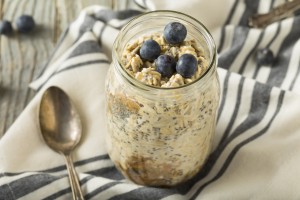If you’ve recently had a baby and are currently breastfeeding, you may have many questions! One of the most common questions about breastfeeding and nutrition is whether or not certain foods make breastfeeding babies fussy. While some mommas swear things like spicy foods upset their little one’s tummies, others may not notice a difference.
This article will look at how foods may impact your baby. We will also look at the top five foods commonly known to cause fussiness.
Are there foods that make breastfeeding babies fussy?
The truth about the foods you eat and your baby’s mood is simple: every baby is different. While some babies may become fussier after you eat a burrito bowl with lots of beans or enjoy broccoli or cauliflower that have a history of anecdotal reports of causing gas, other babies may be totally fine with it.
Some foods may change the way your breastmilk tastes; however, there are no published reports that look at the changes in taste from the food the mother eats and a baby’s behavior at the breast.
The key to figuring out what foods upset your little one and which don’t is simply noting how your baby acts after consuming a particular food. If you see a pattern each time you eat a particular food, there’s a good chance it isn’t settling well with your baby. It may also be helpful to keep a food journal to identify the foods that upset your baby and how soon after you consume them, the fussiness starts.
If you are worried about food intolerances or food allergies, you will need to cut out the food for an extended period of time to assess if it’s causing your baby upset. For instance, if you are worried about dairy, you will need to cut it out from your diet for up to four weeks. This gives time for the food to be removed entirely from your body and gives your baby’s gut time to rest. It does take some time, but it will be worth it in the end, so you know whether or not something is affecting them!
Let’s look at some of the most commonly discussed foods that make breastfeeding babies fussy.
The Five Probable Foods That Make Breastfeeding Babies Fussy
#1 Dairy
This is one of the most talked-about foods for breastfeeding and fussiness. Many moms remove dairy from their diet when breastfeeding when they notice symptoms in their little ones. If you notice certain symptoms linked to a cow’s milk allergy, it may be worth removing the dairy from your diet and seeing if any symptoms improve. Symptoms may include skin breakouts, fussiness, irritability, and/or changes in stools.
#2 Caffeine
While often a bummer for new moms desperate for an energy boost, some babies can be sensitive to the caffeine in your morning cup of coffee. However, the good news is that a small amount under 300 milligrams of caffeine per day likely won’t cause any issues.1 However, having large amounts of caffeine can undoubtedly lead to fussiness as caffeine does pass through breast milk. If you notice your baby is more wired or fussier than usual, you may want to cut back on the amount you consume.
#3 Soy
Soy is another common allergen and is often associated with issues during breastfeeding. This is one of the most common offending foods. If you suspect your baby may be reacting to the soy in your diet, it may be worth removing it and seeing if things improve.
#4 Other Top Allergens
The other common food allergies include wheat, corn, eggs, and peanuts. These are all foods that many moms try eliminating from their diet to see if the fussiness resolves. If your baby is reacting to a food you are eating and you notice blood or mucus in their stool, bring this to your pediatrician’s attention as soon as possible.
#5 Fiber-Rich Foods
Fiber-rich foods like broccoli, and cauliflower, certain fruits like prunes, pears, and things like Brussels sprouts, cabbage, and garlic may all cause fussiness in your baby. However, this is anecdotal, not evidence-based. Many women find they can eat these foods without issues with their babies. Just follow your baby’s lead, and they will let you know if it’s bothering them!
Remember that not all babies react to the foods you eat, but some certainly do. It’s not a bad idea to keep a food journal if you are trying to rule out causes of fussiness. Simply removing certain foods and altering your diet may be the key to helping your baby feel more like themselves and to reduce the amount of fussiness they may experience.































